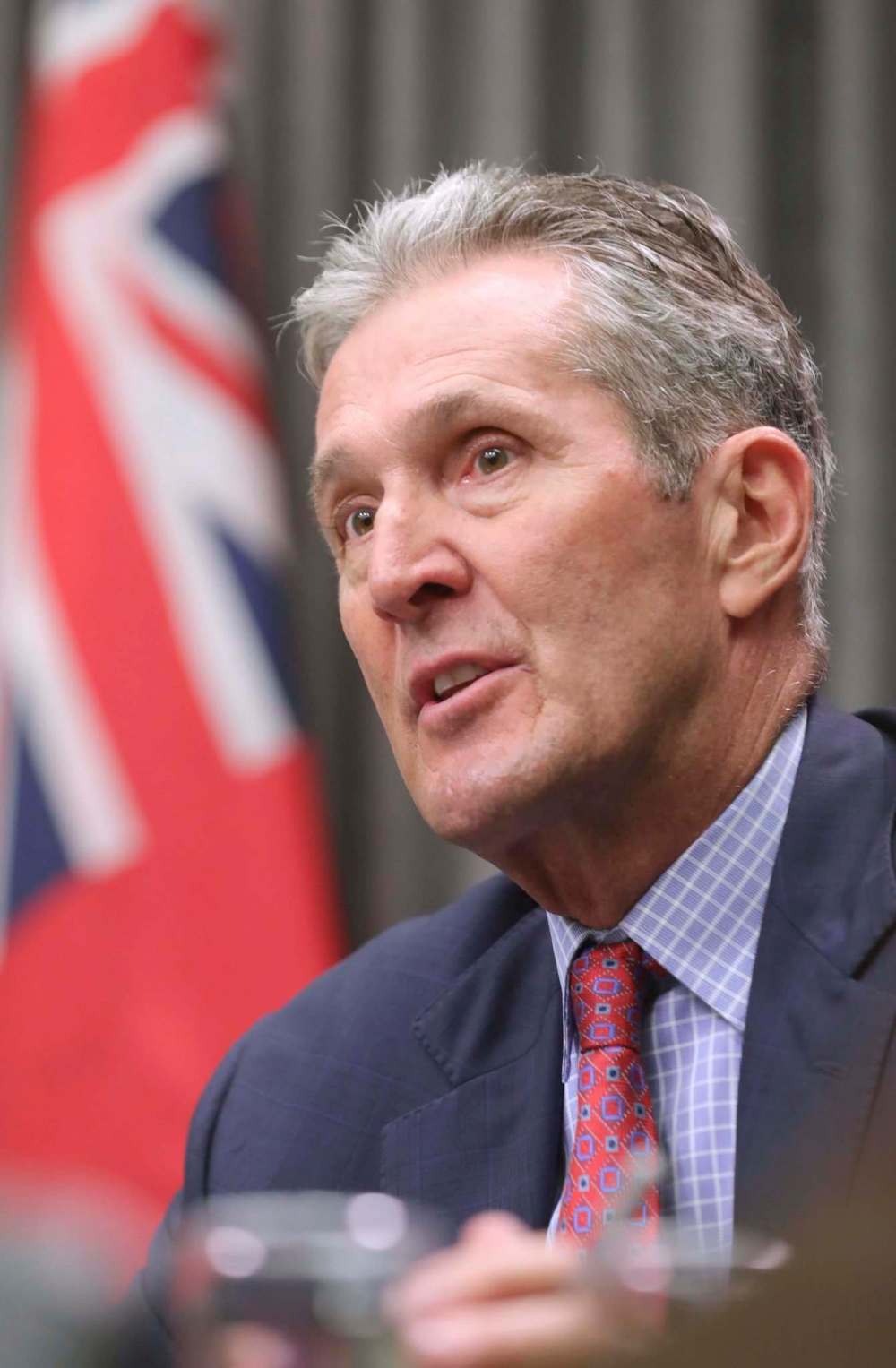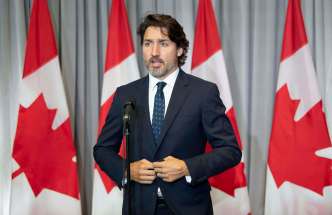Pallister government immune to pandemic so far Probe/Free Press poll finds support similar to last fall, when Manitobans re-elected PCs to second majority mandate
Read this article for free:
or
Already have an account? Log in here »
To continue reading, please subscribe:
Monthly Digital Subscription
$0 for the first 4 weeks*
- Enjoy unlimited reading on winnipegfreepress.com
- Read the E-Edition, our digital replica newspaper
- Access News Break, our award-winning app
- Play interactive puzzles
*No charge for 4 weeks then price increases to the regular rate of $19.00 plus GST every four weeks. Offer available to new and qualified returning subscribers only. Cancel any time.
Monthly Digital Subscription
$4.75/week*
- Enjoy unlimited reading on winnipegfreepress.com
- Read the E-Edition, our digital replica newspaper
- Access News Break, our award-winning app
- Play interactive puzzles
*Billed as $19 plus GST every four weeks. Cancel any time.
To continue reading, please subscribe:
Add Free Press access to your Brandon Sun subscription for only an additional
$1 for the first 4 weeks*
*Your next subscription payment will increase by $1.00 and you will be charged $16.99 plus GST for four weeks. After four weeks, your payment will increase to $23.99 plus GST every four weeks.
Read unlimited articles for free today:
or
Already have an account? Log in here »
Hey there, time traveller!
This article was published 24/09/2020 (1906 days ago), so information in it may no longer be current.
COVID-19 has thrown thousands of Manitobans out of work, weakened businesses and amped up anxiety levels, but it doesn’t seem to have had much impact on provincial voting intentions.
Brian Pallister’s Progressive Conservatives are about as popular with Manitoba voters now as they were a year ago when they were re-elected with a second majority government, according to a new Probe Research/Winnipeg Free Press poll.
The PCs enjoy the support of 43 per cent of decided voters, compared with 34 per cent for the NDP, 16 per cent for the Liberals and five per cent for the Green party. Sixteen per cent of those surveyed were undecided.

!function(e,i,n,s){var t=”InfogramEmbeds”,d=e.getElementsByTagName(“script”)[0];if(window[t]&&window[t].initialized)window[t].process&&window[t].process();else if(!e.getElementById(n)){var o=e.createElement(“script”);o.async=1,o.id=n,o.src=”https://e.infogram.com/js/dist/embed-loader-min.js”,d.parentNode.insertBefore(o,d)}}(document,0,”infogram-async”);
In last September’s election, the Tories won 47 per cent of the vote, while the NDP and the Liberals received 31 per cent and 14 per cent, respectively.
And apart from a June Probe survey that saw the PCs (38 per cent) and NDP (36 per cent ) running neck and neck provincially, the Progressive Conservatives have been polling consistently at the 42-43 per cent mark since their election victory.
Probe president Scott MacKay said the continued solid numbers for the PCs appear to reflect "tacit approval" of the government’s handling of the pandemic.
"If this thing were being bungled (or) perceived to being bungled, those numbers wouldn’t be as strong as they are," he said.

MacKay said he regards the party’s June dip in support as an anomaly, given it has otherwise remained steady.
Paul Thomas, professor emeritus of political studies at the University of Manitoba, says he’s not surprised at the results.
“I think a lot of people accepted that the government has, on the health side, done pretty much all that they could have and, most importantly, they’ve been guided by the advice of the chief provincial health officer,” he said.
While PC support hasn’t eroded during the pandemic, neither has it improved, Thomas noted, as is sometimes the case when a government is confronting an emergency.
That could be because Pallister doesn’t always come across as empathetic, and his government’s responses to the economic downturn "were seen as limited and inadequate for the longest period of time," Thomas said.
While the Tories trail the NDP in support in Winnipeg, they continue to hold a huge advantage over their nearest rivals outside the capital.
The New Democrats enjoy the support of 40 per cent among decided voters in Winnipeg, compared with 32 per cent for the PCs and 22 per cent for the Liberals. Outside the city, the Tories are the choice of 58 per cent of decided voters, compared with 24 per cent for the NDP and eight per cent for the Liberals.
“I think a lot of people accepted that the government has, on the health side, done pretty much all that they could have and, most importantly, they’ve been guided by the advice of the chief provincial health officer.” – Professor emeritus Paul Thomas
Provincewide, the PCs are favoured by 48 per cent of decided male voters. Twenty-nine per cent of men would vote NDP if an election were held today, and 15 per cent would cast a ballot for the Liberals, according to the poll.
Among women, the two main parties are virtually tied for support, with the NDP at 38 per cent and the Tories at 37 per cent.
That’s bad news for the New Democrats, who tend to win government in Manitoba when they have a comfortable lead among women voters, MacKay said. Men, overall, have traditionally favoured the Progressive Conservatives.
"When the NDP are doing well, and it looks like they’re about to be elected or re-elected, you do see women supporting them… and we don’t have that (in sufficient numbers) today," he said.
The Progressive Conservatives have more support than the NDP (62 per cent vs. 26 per cent) among those with high school education or less, as well as those with some post-secondary education (47 per cent vs. 29 per cent), although they trail the New Democrats (32 per cent vs 40 per cent) among post-secondary graduates.
The Tories have a sizable lead over the NDP (49 per cent vs 31 per cent) among those age 55 and older and a smaller ones (42 per cent vs. 34 per cent) among those age 35-54 and those aged 18-34 (38 per cent vs. 35 per cent).
larry.kusch@freepress.mb.ca
Methodology
Probe Research polled a sample of 1,000 adults online, 683 of whom were recruited by phone through representative sampling, with the rest pulled randomly from the firm’s panel of survey-takers, from Sept. 8 to 17.
That sample provides results with 95 per cent certainty, with the equivalent of a margin of error within 3.1 per cent.

Our newsroom depends on a growing audience of readers to power our journalism. If you are not a paid reader, please consider becoming a subscriber.
Our newsroom depends on its audience of readers to power our journalism. Thank you for your support.







